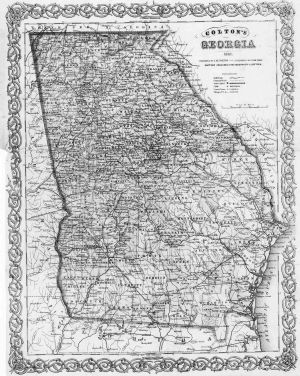 The Chattahoochee Baptist Association in north Georgia meets this weekend. The war is on the minds of delegates, who craft and affirm by vote a special report on “State and Country” that reads:
The Chattahoochee Baptist Association in north Georgia meets this weekend. The war is on the minds of delegates, who craft and affirm by vote a special report on “State and Country” that reads:
“Whereas, Abraham Lincoln is endeavoring to subjugate the Southern states contrary to the Constitution which he has taken an oath to carry out to the letter and, if he is successful, he will deprive us of our rights, religious and politically bequeathed to us by our forefathers, and will confiscate our property and do violence to our persons to such an extent that death itself would be preferable;
Resolved, that, while we look to the God of Justice, we will defend our rights with our blood and our treasure at all hazards, and to the last extremity, and we believe that every friend of the Southern Confederacy will do likewise.
Resolved, that while we are thankful to God for the success given to our arms, we will still pray for His protection, care and final success.”
The reference to “property” refers to slaves, while “rights” refers to the rights of whites to own slaves. Not all Baptist associations of the war-time South voice support of the Confederacy and slavery (and few refer to Lincoln by name). War-time meetings often consist of a mixture of slaveholders and common (non-slaveholding) whites. As in the South at large, some tension exists between slaveholders and some non-slaveholders, representative of a socio-economic divide among whites of the South. Slaveholding Baptists, like other slaveholders, seek to impress upon common folk the concept that black slavery is necessary in order for poor whites to one day scale the economic ladder. Hence, slaves as “property” and the southern “right” of slavery is pivotal to southern prosperity. In addition, slaveholders warn, the northern campaign to abolish slavery will also destroy southern lands and rights at large.
Sources: Sybil Mcray, Sesquicentennial History of the Chattahoochee Baptist Association and it’s Affiliated Churches, 1826-1976 (pp.19-20); also see Chattahoochee Baptist associational records in the Special Collections of Mercer University’s Jack Tarver Library


